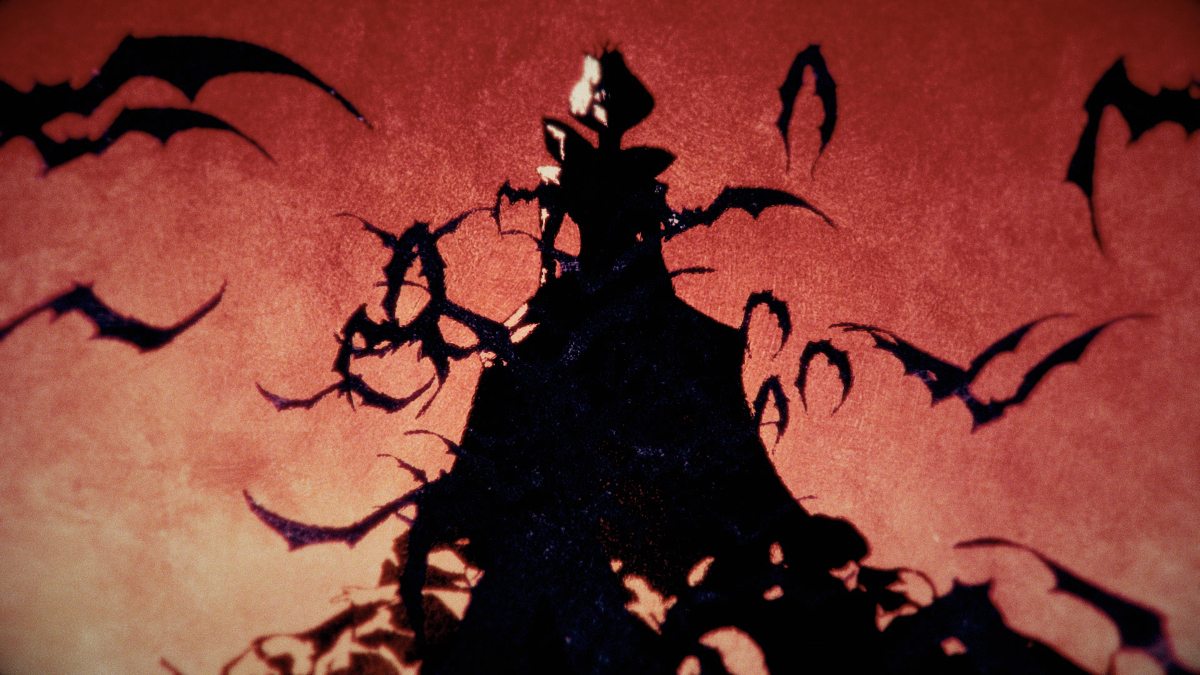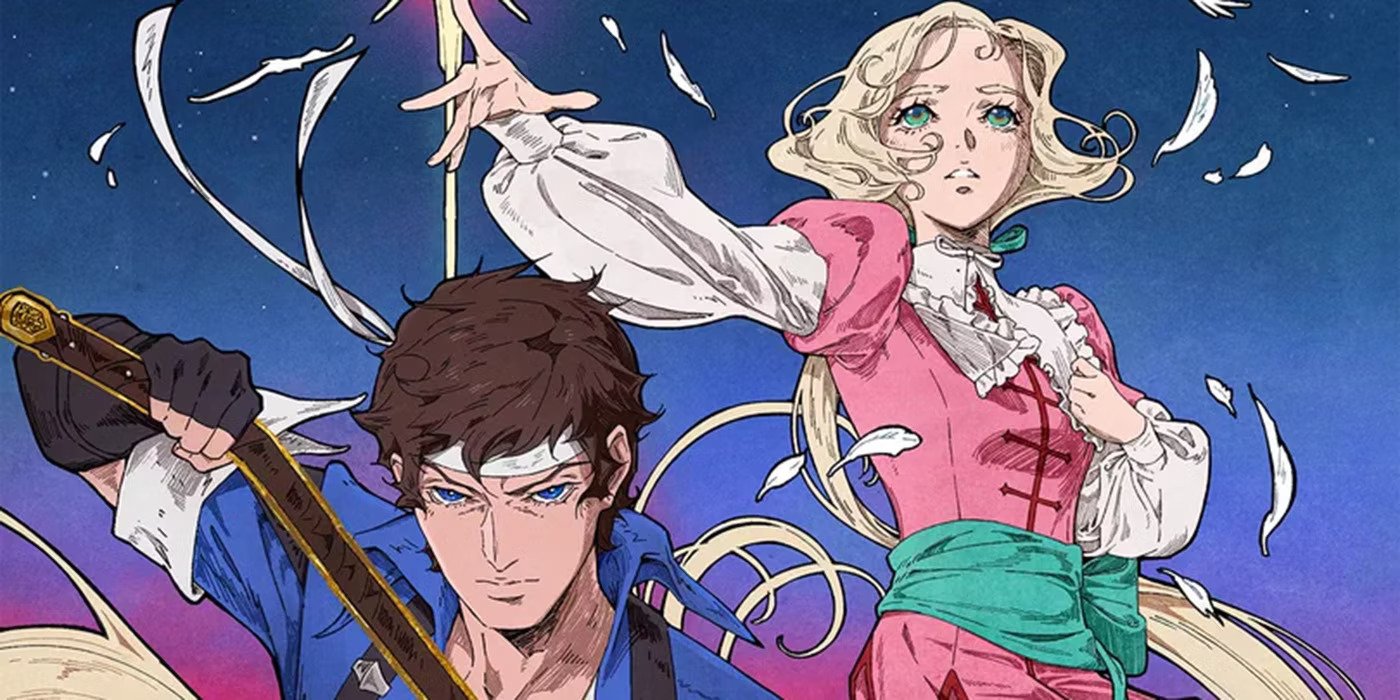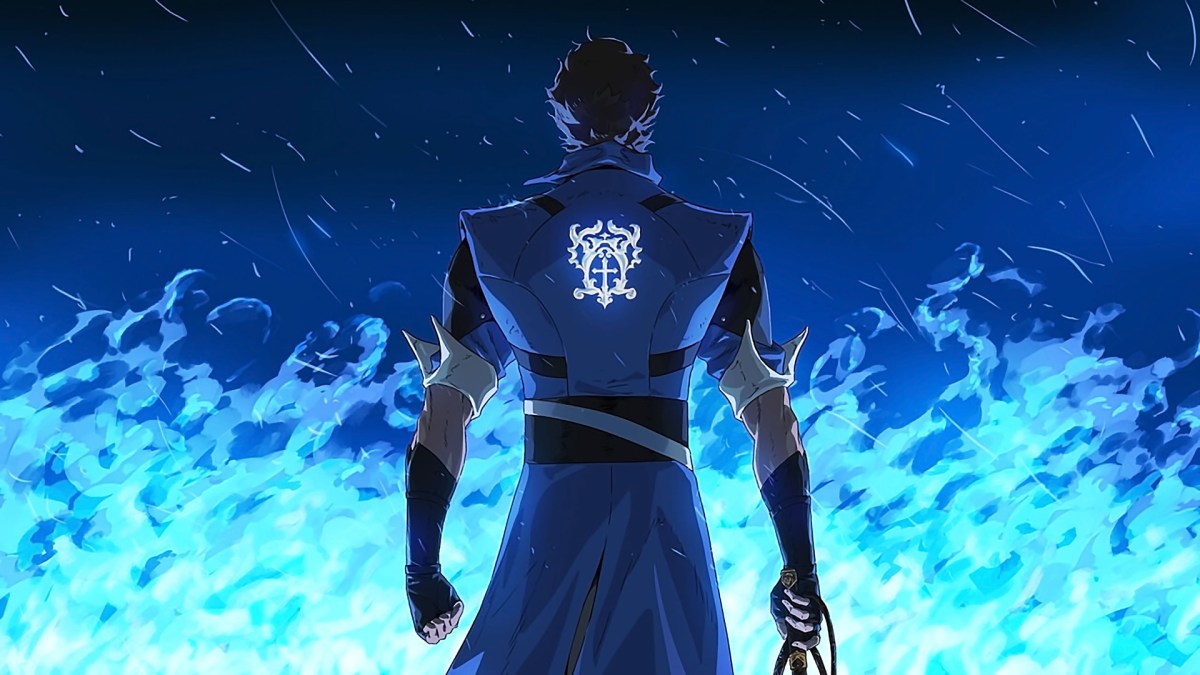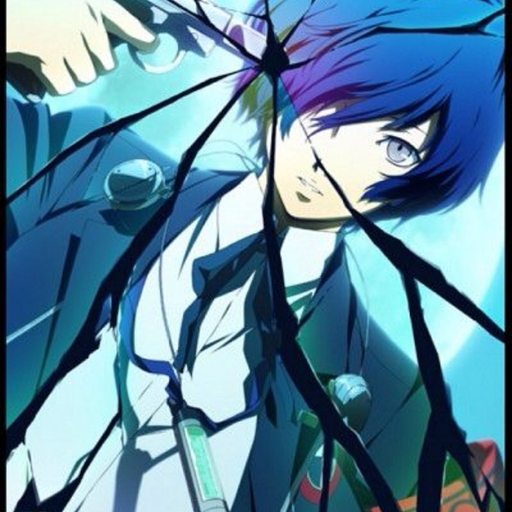Castlevania: Nocturne had a tough act to follow. The first four seasons of Netflix’s Castlevania had their ups and downs, but all together it still delivered an exciting thrill ride that was the best thing the franchise had put out in years. It developed a cult following since thanks to its crass humor, gruesome violence, and surprisingly deep pathos.
Yet with a new change in art style as well as an entirely new cast of characters, somehow this sequel series Castlevania: Nocturne feels like a genuine evolution of what made its predecessor so enjoyable, and then some. Drawing from the characters and events of numerous Castlevania games, most notably Rondo of Blood, it’s a more mature take on the foundation, but it doesn’t forget what made the series as enticing as it was.
Set hundreds of years after the events of the first four seasons, Castlevania: Nocturne follows Richter Belmont (Edward Bluemel), the descendent of Trevor Belmont and Sypha Belnades, as he assists a young French revolutionary named Maria Renard (Pixie Davies). Maria is doing whatever she can to help aid in the French Revolution, mostly in the form of fighting the local aristocracy, all of whom have been converted into vampires. These vampires are all talking about their messiah Erzsebet Bathroy (Franka Potente), a deity who will devour the sun and usher in an age of darkness the likes of which hasn’t been seen since Dracula and Carmilla. Richter, Maria, and all of their allies have to do whatever they can to stop the vampire invasion and save the world.
Despite the slight shift in animation style, most of the appeal of Castlevania: Nocturne is still intact from its previous seasons. There isn’t as strong of a group dynamic this time, as most of the characters have their own unique arcs and moments that are developed in isolation rather than as a group. Richter, Maria, and their ally Annette (Thuso Mbedu) are new characters to the animated series, and instead of being thrown into a dangerous conflict immediately, Nocturne plays the long game.
The tension slowly build as the characters learn more about themselves and prepare themselves for the conflict to come. All of these characters need to overcome their past, whether it be through fighting vampires that have harmed them or learning more about their family and heritage. Each of our core trio has their own moment to shine, but because only a fraction of the season is spent with these three together, the big group scenes don’t carry as much weight as those in the original show with Trevor, Sypha, and Alucard.
Normally that would be an issue, but the show wisely makes each of its main characters feel like actual people rather than snarky rouges. Richter is a pleasant and nice young man, one whose kindness is readily apparent from the first time we see him. Unlike how Trevor was portrayed, Richter genuinely seems like a good person who wants to do the right thing because it’s right. Maria is vastly different from her in-game counterpart, being feisty and headstrong, but firm in her beliefs of equality and standing up for the weak and downtrodden.
The weakest of the three would probably be Annette if only because elements of her arc parallel moments from Isaac’s arc from earlier in the show, but Nocturne does enough to make Annette stand out and has her provide some interesting commentary on slavery and the meaning of freedom.
But if there’s one thing that pervades Castlevania: Nocturne, it’s how bleak and hopeless things eventually become. The earlier episodes seem to paint Richter and Maria’s struggle as similar to how the fight against Dracula began, sans the emotional buildup the first season gave him. As the season progresses, the show subtly shifts in tone and presents a world that feels almost hopeless as the vampires gain more and more victories and even our heroes seem to doubt if they have any chance at winning.

This mood is almost entirely due to the presence of Erzsebet, who despite only being fully revealed more than halfway into the series, has a presence more formidable than Dracula’s. Erzsebet is a wonderful villain almost entirely due to how totally in control she is, and the reverence that her servants feel toward her. She doesn’t have as much emotional depth as Dracula did at this point, which is probably why I still prefer him as a villain, but she’s far more of a threat than Dracula ever was.
That pervading tone of dread is the show’s strongest suit, but you may be a bit disappointed if you were a fan of the visceral violence from earlier seasons. Nocturne is considerably more tame and never approaches the same grizzly heights that earlier seasons did, but that doesn’t mean the action is bad. When it does show up, it’s well choreographed and leads to spectacular fight scenes, but you won’t be seeing as much blood or schlocky deaths that you may be expecting from the show.
The humor is still on par with earlier seasons, where the comedy comes from the out-of-nowhere profanity, but it’s more restrained and only sporadically. I honestly prefer it that way, since that leads to those explosive bits of foul language being even funnier. All of that is a sign of how much the show has grown over the years.
When Castlevania first premiered in 2017, its four-episode season was basically one gigantic action movie with tons of cursing and violence. Now six years later, the character drama has taken the reigns and leads to several quieter moments that are made even more impactful thanks to the solid animation.

The aesthetics of the show have changed, giving us a sketchier animation style that lends itself well to fluid motion. I was reminded at times of moments from movies like The Tale of Princess Kaguya, where the scratchy animation matches the high emotional stakes of certain scenes, mirroring the character drama present. There are some issues I have with how its implemented, mostly in large group scenes where some of the characters can look off-model, but I have to give props for just how consistent the show is the majority of the time.
It’s very clear by the end of the season that this is only the beginning of a much larger story. A lot of pieces have been set up and the finale does a hell of a job of throwing curveball after curveball at the viewer. If anything, it can feel like the show gets a bit overstuffed towards the end as it tries to tie everything together into a neat little package. I’m torn about this, since the potential for the second season is incredibly high given the implications of the finale and the introduction of elements from Castlevania games outside of Rondo of Blood, but it also makes the finale feel incomplete as the fates of some characters are left in limbo while others end up not contributing to much of anything.
But that’s a very minor criticism of a show that ultimately was able to meet and exceed my expectations. Castlevania: Nocturne doesn’t feel the need to force itself to have cheap action and rampant cursing in order to be entertaining. Granted it’s still a hell of a lot of fun when it pops up, but Nocturne commits to being a character drama more than anything else. While it took time for me to like Trevor, Sypha, and Alucard, I immediately fell for our new core cast, proving that the writing of the show has evolved significantly over the past several years. The stellar animation and palpable sense of doom that hangs over the show had me interested in seeing just how much worse things can become for our heroes.
While the show feels incomplete right now due to how many loose threads there are, this will basically be a non-issue if/when a second season is greenlit by Netflix. There’s a level of confidence and conviction in Castlevania: Nocturne that you just don’t see in many shows, animated or otherwise. It has complete faith in itself and knows that you’ll be coming back for more after the first episode and isn’t trying to rely on cheap tricks to keep audiences engaged. It can firmly stand on its own now thanks to its likable cast, solid action, imposing villains, and deliciously dark mood. If you haven’t been watching Castlevania before this, now is the time to catch up on the series. Castlevania: Nocturne isn’t exactly a great jumping-on-point for newcomers, but for longtime fans, it’s easily the best season of the show yet.






Published: Sep 29, 2023 04:00 pm